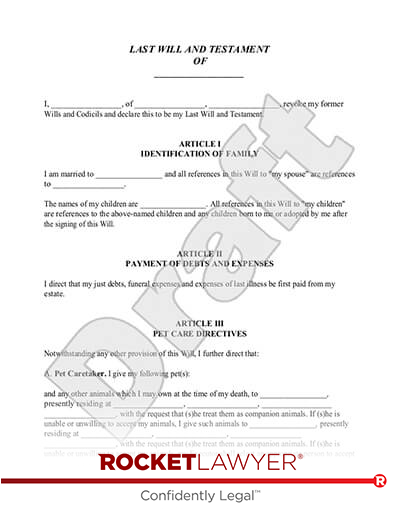1. Appoint a guardian for your children.
No one knows their children better than a parent. If you pass away without a Last Will and Testament that includes instructions for your children’s care, the state decides who may take over the care for them. You can choose a guardian for your minor children in your Will to make sure they are looked after by someone you trust.
2. Protect your business.
Making a Last Will and Testament can help to pass your company, or business, to your heirs or the co-owners of your business. Many family owned businesses do not last past the first generation due to a lack of estate and succession planning. Having a plan to pass your business on to the next generation can make all the difference when the time comes. Many family owned businesses rely on Living Trusts, or other estate planning tools, to make sure the business can continue to operate after the family member who started the business, or ran the business, passes on.
3. Decide who gets your home and possessions.
Whether it's the family home, a family heirloom, a classic car, or your savings, making a Will lets you decide who receives your belongings after you die. Without a Will, your assets and possessions are distributed according to your state’s laws and that might not meet your wishes. For example, state laws never include provisions for those not related to you, like close friends or mentors. A Will can make sure your loved ones get the assets and other items you want them to receive.
This can be particularly important for individuals who have children from a prior relationship and have since remarried. When a current spouse may inherit the majority of your estate by state law, this may leave your children who are not related to your current spouse unable to inherit, or only able to inherit a lesser amount than you may want, unless you have a Will.
4. Provide for a favorite charity.
Wills do not have to be just for friends, family, and loved ones. They can also be used to make a gift to charity. Including a charity in your Will is a great way to give back and make sure your assets are used for a good cause. It is important, however, to talk with a lawyer about how you make donations in order to not put your heirs or family members in the situation where they must sell other assets to pay for the donation.
5. Make a difficult time less difficult.
Losing someone is incredibly hard, and the last thing anyone wants to do is spend those emotional times haggling with lawyers, courts, and family members about money and stuff. Making a Will keeps your loved ones from having to deal with bureaucracy in a time of sadness.
Starting a Last Will and Testament can be a challenge, however, the peace of mind from completing one is worth it. If you have more questions about making a Will, or estate plan, reach out to a Rocket Legal Pro™ for affordable legal advice.
Please note: This page offers general legal information, not but not legal advice tailored for your specific legal situation. Rocket Lawyer Incorporated isn't a law firm or a substitute for one. For further information on this topic, you can Ask a Legal Pro.
